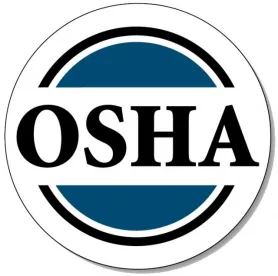On Nov. 28, 2016 a federal judge in Texas cleared the way for the Occupational Safety and Health Administration’s (OSHA) new anti-retaliation regulation to take effect on Dec. 1, 2016, at least temporarily (Texo ABC/AGC, Inc., et al. v. Perez). The regulation, 29 C.F.R. § 1904.35(b)(1), requires employers to inform employees of their right to report work-related injuries free from retaliation and to establish reasonable procedures for employees to report injuries. The preamble to the rule states that many employer drug testing programs and safety incentive programs, which are prevalent in the United States, discourage the reporting of injuries and are, therefore, in violation of the new regulation. This ruling was not a decision on the merits; that will take place sometime in the future.
DRUG TESTING
OSHA states in the preamble (but not in the regulation) that unless the injury was a result of an impairment, requiring post-injury drug testing is unreasonable under the new rule. A blanket policy of post-accident drug testing is presumed by OSHA to be retaliatory and to discourage reporting.
The preamble and the OSHA interpretation offer some examples of scenarios that would be considered unreasonable, such as a bee sting, repetitive motion injury, an injury caused by a lack of machine guarding or a machine or tool malfunction. But these examples do not settle the issue. Drug testing must be completed very near the time of the injury in order to be accurate. It often takes days or weeks to complete an accident investigation and understand the actual cause of an injury. OSHA’s position will make it very difficult for an employer to do anything other than base a drug test decision off the employee’s account of the incident.
The preamble reiterates the fact that the Occupational Safety and Health Act (OSH Act) expressly prohibits OSHA from superseding or affecting worker compensation laws. Many worker compensation laws have “drug-free workplace” programs, or similarly allow reduction in awards where drug use is established. While OSHA was very vague on this subject in the preamble, drug testing programs done in furtherance of workers’ compensation laws should not be considered by OSHA to be retaliatory.
INCENTIVE PROGRAMS
OSHA warns that incentive programs that may cause under-reporting of injuries, such as programs that deny a benefit to an employee who reports a work-related injury, are a violation of the new rule.
EXTENSION OF TIME FOR REPORTING RETALIATION
The new regulation also gives OSHA and employees another avenue for pursuing retaliation claims when an employee is exercising a right protected by the OSH Act. Under the OSH Act, the employee’s remedy for retaliation has always existed under Section 11(c), but that process can only be initiated through the employee filing a complaint within 30 days of the retaliatory act. The new regulation allows an OSHA inspector to initiate the process by issuing a citation within six months of the retaliation (or possibly longer depending upon when OSHA is made aware of the event). If there is a citation, the employer may have to abate the violation (i.e. change its policy) and make the employee whole (such as rehiring a terminated employee with back pay). This is a vastly different remedy than exists for typical OSHA citations and would seem to be prohibited by the OSH Act.
WHAT THIS MEANS FOR EMPLOYERS
As of today, OSHA has not indicated that it intends to extend the time for compliance beyond Dec. 1, 2016. OSHA may issue additional guidance on the subject at any time. Employers should examine their employee incentive and drug testing programs to prepare for the likelihood that OSHA will begin actively enforcing the regulation. In light of the statement in the preamble that OSHA cannot affect workers’ compensation laws, employers should also review and understand the drug testing requirements applicable to their employees to evaluate how workers’ compensation requirements may protect their programs from being deemed in violation of the new rule. Employers may need to add language to their drug testing programs clarifying that the purpose of drug testing is pursuant to the workers’ compensation statute.





 />i
/>i

